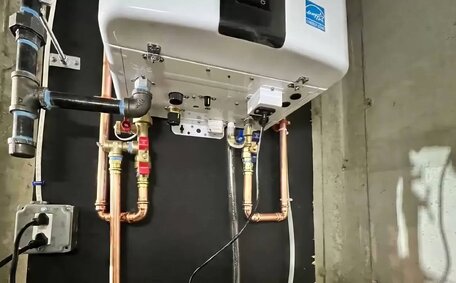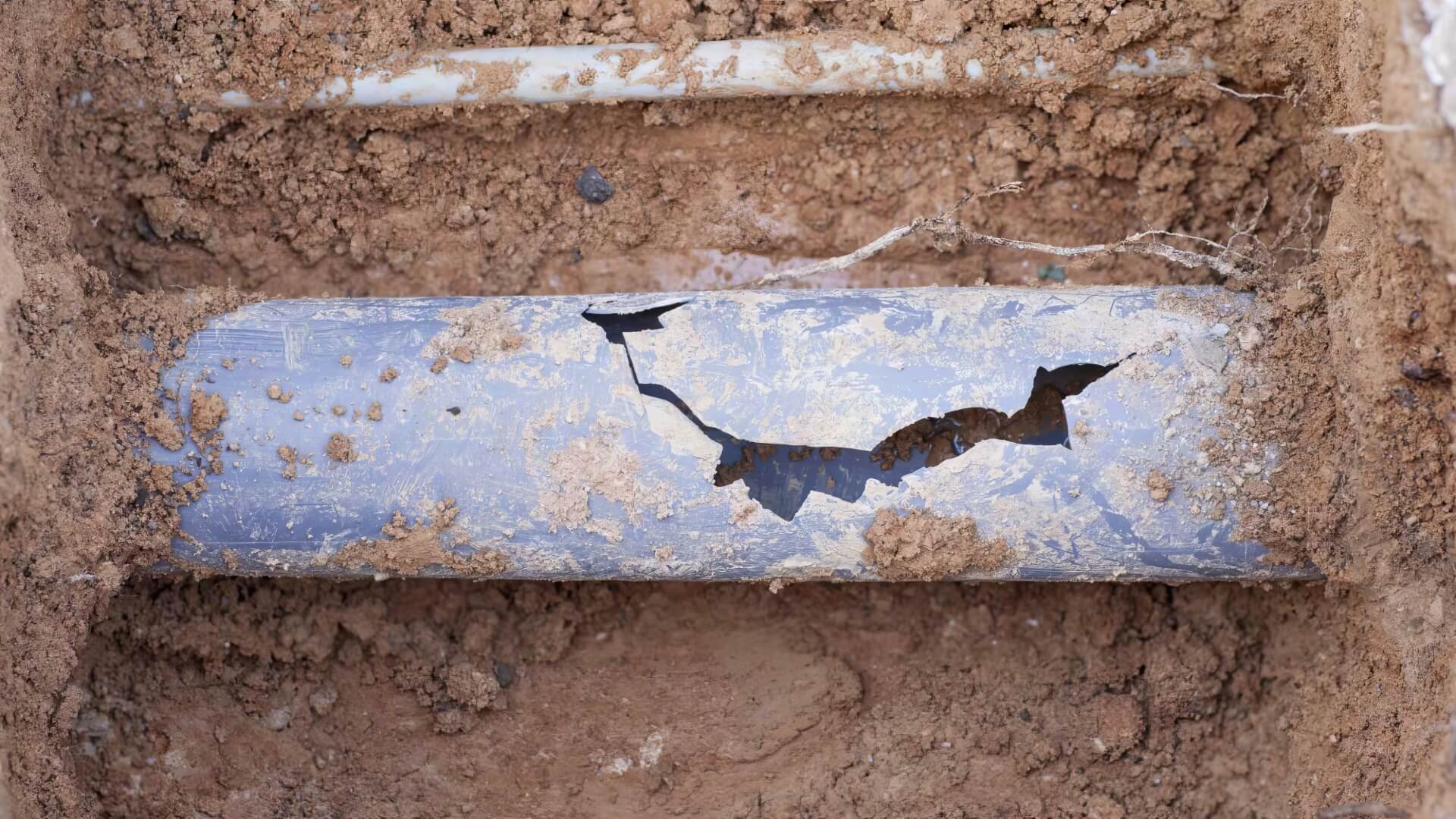Essential Gas Fitting Tools: An Overview
Gas fitting involves installing, servicing, and fixing gas lines, appliances, and equipment, with the right tools crucial for safe and efficient work.
As a locally owned and operated business based in Minchinbury, Sydney, Minchinbury Plumbing has over 10 years of experience and expertise in all aspects of gas fitting. Our team recognises the critical role of high-quality tools and equipment in successful gas work.
Gas conditioning units are vital for both professionals and homeowners, filtering contaminants and moisture from the gas supply. These units remove contaminants and moisture from the gas supply to prevent corrosion or damage to appliances downstream. Properly conditioned gas is vital for safety and performance.
In the sections below, we’ll outline some of the other indispensable gas tools that professionals use on a daily basis, as well as useful equipment that gas fitting enthusiasts can invest in for their home projects.
Leak Detection Equipment: Ensuring Safety
Early detection of gas leaks is crucial for ensuring safety. Gas leaks that go undetected can lead to explosions, fires, carbon monoxide poisoning, and other dangerous situations. Using high-quality electronic gas leak detectors allows Gas Safe certified engineers like those at Minchinbury Plumbing to find even minor leaks quickly.
These highly sensitive tools can identify even the smallest gas leaks, undetectable by smell.
This allows technicians to pinpoint and repair leaks efficiently.
Leak detectors are versatile, essential for various gas fitting applications.
They ensure the integrity of appliances, pipe joints, and fittings after installation and during regular maintenance.
Gas Meters and Pressure Testers: Precision
Accurate gas pressure and flow rates are essential for a gas system’s safe and efficient operation. Specialised metres and testers allow gas fitters to measure these parameters accurately during installation, maintenance, and testing.
Here are the key steps Minchinbury Plumbing’s Gas Safe engineers follow to ensure precision:
- Use calibrated digital manometers to conduct precision pressure tests on newly installed gas pipework. Standards require pipework to hold specified pressure levels for extended periods.
- Employ diaphragm gas metres to accurately metre appliance gas consumption rates during commissioning. This data helps size components and predict usage.
- Verify burner pressure rates on appliances with U-gauge manometers. Deviations from manufacturer specifications may signal potential problems.
- Confirm gas flows and pressure at each outlet with pitot tubes and specialised metres. Adjust regulators as needed to optimise the system.
- Regularly check meters and tools to ensure precision and calibration. This ensures ongoing safety and precision.
Digital gas testing tools represent a significant advance in pressure and flow measurement techniques. Our use of advanced technology, combined with Gas Safe expertise, ensures optimal gas safety and system performance.
Welding and Soldering Tools: Joining Pipes
Properly joining pipes is critical in gas systems. Two main methods gas fitters use are welding and soldering.
Oxy-acetylene torches, common welding equipment, are used to permanently bond pipes. The extreme heat fuses metal components together, signifying the importance of a secure hose fitting in the welding process. Welding hoses deliver the pressurised oxygen and acetylene gas mixtures to the torch in a controlled manner. Minchinbury Plumbing’s Gas Safe specialists take safety precautions like flashback arrestors on all welding hose connections.
Soldering irons heat and melt solder to create leakproof joins upon cooling.
Our experts offer the following practical soldering advice:
- Choose quality lead-free solder to avoid contamination
- Apply adequate heat-dissipating paste to protect pipe interiors
- Ensure joint parts are clean, fitted properly and given time to cool fully
Both welding and soldering produce durable, gas-tight seals when performed correctly. Our experts leverage the best techniques and tools to deliver robust and safe pipe joints.
Power Tools: Efficiency in Pipes
Power tools enhance efficiency in cutting and threading pipes over manual techniques. Minchinbury Plumbing leverages such modern equipment to deliver prompt, reliable gas fitting services.
Powered pipe cutters swiftly make clean cuts through pipes up to 300 millimetres wide. Their precision blades ensure straight cuts, unlike the uneven edges from manual hacksaws. Threaded ends mate together easier as a result.
Electric threading machines rapidly create accurate, leak-proof threads for joining pipes. These specialised tools cut threads perfectly sized to international specs. Automated threading is faster and more efficient than the manual method.
Utilising advanced power tools saves time on-site without compromising safety or quality. This enables us to take on more gas fitting jobs and prioritise emergencies for your business and the community. Our efficient practices translate to time savings and competitive pricing for our clients.
While power tools require knowledge and training for safe operation, they are indispensable assets for gas fitters focused on providing efficient and prompt service.
Protective Gear: Safe Practices
Proper protective gear is essential for plumbers’ safety during gas fitting tasks. At Minchinbury Plumbing, We mandate that our Gas Safe engineers utilise specialised gear to ensure safety for both our team and clients.
Common protective equipment our gas fitters utilise includes:
- Fire retardant uniforms to minimise burn risks from flashes or sparks
- Safety goggles to shield eyes from debris while handling pipes or tools
- Sturdy gloves for gripping items and handling hot equipment
- Steel-toe boots for foot protection onsite
- Hard hats for overhead hazards when working in confined spaces
Appropriate gear significantly lowers the risk of hand, eye, head, and foot injuries. Protected technicians can concentrate on the gas work, prepared for any sparks, leaks, or explosions.
We stress the importance of protective gear in maintaining strict gas safety standards in our operations. Preventing onsite accidents helps minimise risks that could impact the gas installation itself or allow gas hazards to escalate. Our proactive approach to protective gear upholds the highest safety benchmarks.
Trust Minchinbury Plumbing as your specialist Gas Safe contractor dedicated to protecting our people, clients and communities through stringent safety protocols across all gas fitting applications.
Industry Regulations: Staying Compliant
In Australia, stringent regulations ensure gas fitting work is conducted safely, legally, and with consumer protection in mind. Minchinbury Plumbing ensures full compliance with safety regulations in all gas-related activities.
Under national standards, all gas fitters must be licenced and registered practitioners to perform or certify work. Known as Gas Safe in NSW, this qualifies experts like our team to handle gas projects across residential, commercial and industrial settings while meeting the highest benchmarks.
Compliance guarantees that your gas work meets essential safety, quality, and reliability criteria. It’s essential for customers to look for Gas Safe accreditation to avoid illegal or unsafe gas fitting services. Trust Minchinbury Plumbing and our decade of compliant local expertise for certified safe and ethical gas solutions.
Contact our Gas Safe certified team by email or phone for prompt, compliant, and safe gas fitting assistance.






